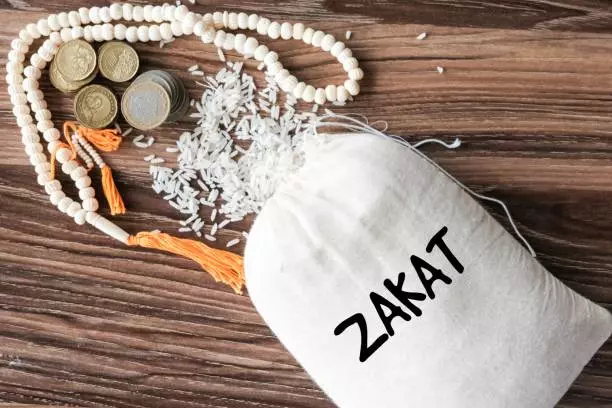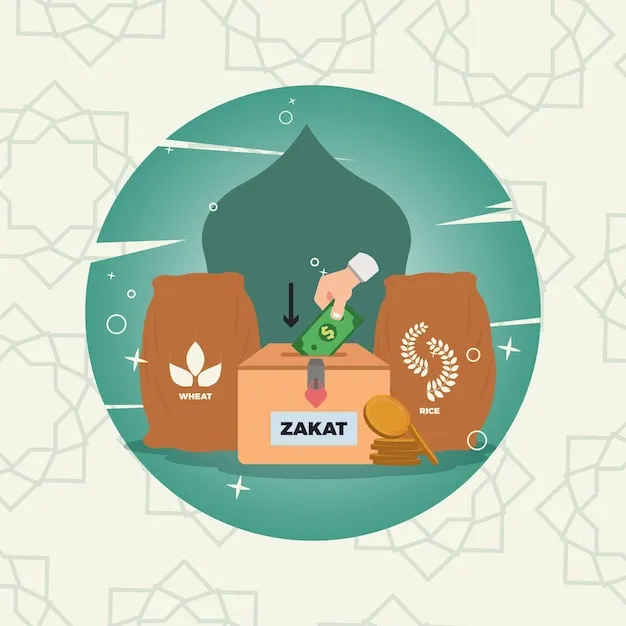Zakat



What is Zakat?
The third pillar of Islam is Zakat, a mandatory charity gift for all eligible adult Muslims who satisfy the nisab requirement.
As Allah (S.W.T.) tells us in the Holy Qur'an: “And be steadfast in prayer and regular in charity: And whatever good you send forth for your souls before you, you shall find it with Allah.” (Qur’an 2:110)
Through our appeals, we help many people who are eligible to receive Zakat The word Zakat means “to grow and increase”. It is also pronounced as Zakah, Zakat and Zakaah. Zakat is the Third Pillar of Islam after the testimony of faith (Shahada) and prayer (Salah). It is a mandatory form of charity given by Muslims whose wealth reaches the “Nisab” (threshold). “So recite what is easy from it and establish prayer and give Zakah and loan Allah a goodly loan.” (Quran 73:20) Zakat can be calculated and paid anytime, but usually Muslims pay their zakat during Ramadan to take advantage of the extra rewards. Paying your Zakat is a means to purify a Muslim’s yearly earnings. Allah SWT says in the Quran: “Take, [O Muhammad], from their wealth a charity by which you purify them and cause them to increase, and invoke [Allah’s blessings] upon them. Indeed, your invocations are reassurance for them. And Allah is Hearing and Knowing.” (Quran 9:103)
What is Nisab?
Donate Your Zakat To Save Lives
Please Note: Use a Zakat calculator to find out if you are eligible for a Zakat donation.
FAQs
Zakat is calculated by deducting 2.5% of your combined wealth. This includes currency, gold and silver, and trade goods.
If one has agriculture or livestock in their possession, then they must also pay Zakat to cover those possessions.
It is important to note that Zakat on livestock and agriculture is different from the Zakat on individuals.
Sadaqah is a voluntary charity that is a general donation of any amount which is encouraged to be given throughout the year and especially in Ramadan.
Zakat, on the other hand, is an obligatory charity donation that is income-based which must be performed by all Muslims that qualify to pay Zakat.
Here are a few differences between Zakat and Sadaqah:
Sadaqa does not have any minimum amount, while Zakat has a fixed minimum percentage of 2.5% a person’s income.
Paying Sadaqah cannot replace Zakat, nor vice versa. Both are separate acts of charity in Islam. Sadaqa donations are a great way to `help the poor and needy.
Zakat is important for many reasons. Firstly Zakat is a Pillar of Islam and if one has sufficient wealth and does not fulfil their obligation of paying their Zakat then they are committing a major sin.
Zakat is the right of the poor and needy Muslims. By paying your Zakat you are helping the lower and middle classes of society which raises economic activity and productivity and reduces poverty which in turn helps in the redistribution of wealth.
Through Zakat, Allah also blesses your wealth and causes it to grow.
Zakat administrators are those who collect and distribute Zakat on behalf of the Muslim community. They are subject to Shariah guidelines, and they are responsible for distributing the wealth as per the Shariah guidelines of distribution.
Zakat administrators are allowed to take a percentage of the Zakat to cover the expenses of their operations.
Besides one’s monetary wealth there are certain things that Muslims may possess that they need to pay Zakat for such as:
1 Cattle
2 Gold and Silver (and similar forms of currencies)
3 Commercial goods – for sale and profit
4 Grains and fruits
5 Minerals and resources and treasures
